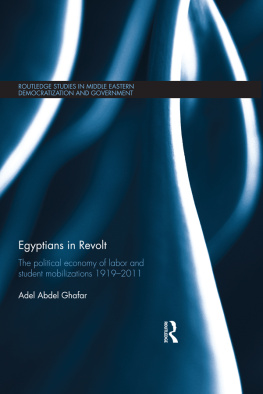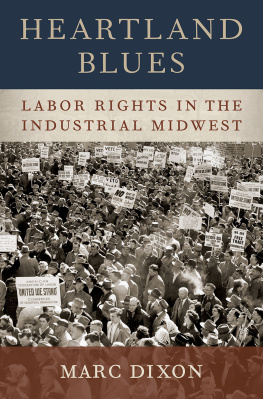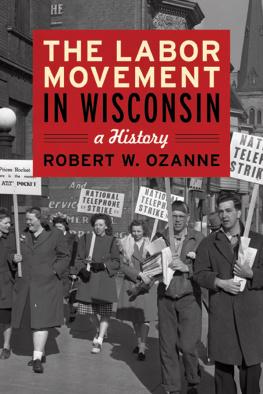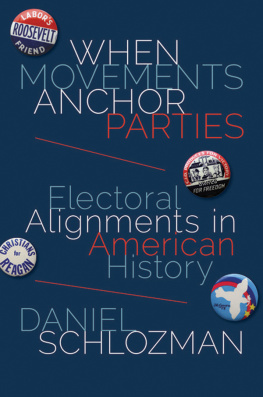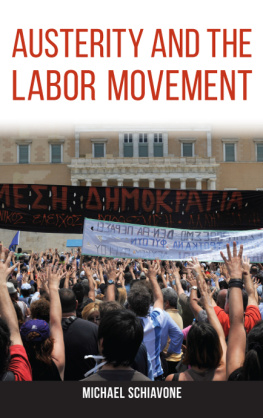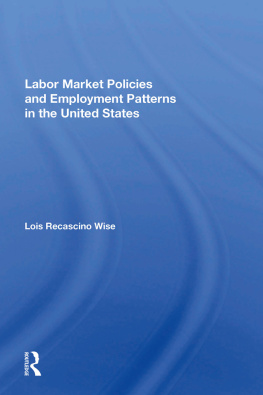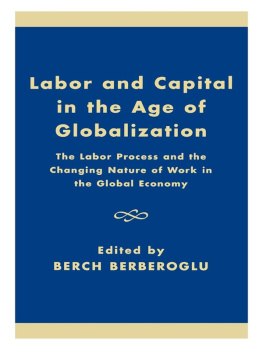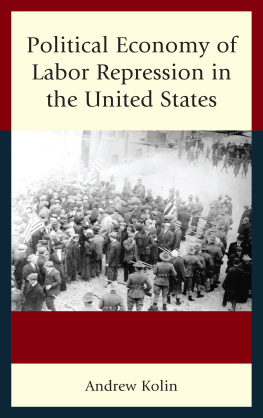Egyptians in Revolt
Egyptians in Revolt investigates the political economy of the Egyptian labor and student movements. Using elements of social movement theory within a broad political economy framework, it assesses labor and student mobilizations in four eras of contemporary Egyptian history: the pre- 1952 era, the Nasser era, the Sadat era and the Mubarak era.
Egyptians in Revolt examines how both student and labor groups responded to the political economy pressures of the respective eras. Within the context of social movement theory, the book argues that political opportunities and threats have had a significant impact on both student and labor mobilizations. In addition, the book explores how the movements have, at times, been able to affect government policies. However, the argument is made that the inability of both groups to sustain momentum in the long term is due to co- optation efforts by established political forces and the absence of viable and enduring organizational structures that are autonomous of state control.
By combining analysis to include both labor and student movements, Egyptians in Revolt is a valuable resource for understanding the Egyptian political economy and its impact on mobilizations. It will therefore be of interest to students and scholars of Middle East Studies, as well as those interested in social movement more broadly.
Dr. Adel Abdel Ghafar is a joint fellow at the Brookings Doha Center and Qatar University, specializing in political economy. He holds a Ph.D. in Political Science and International Relations from the Australian National University.
Routledge Studies in Middle Eastern Democratization and Government
Edited by: Larbi Sadiki
Qatar University
This series examines new ways of understanding democratization and government in the Middle East. The varied and uneven processes of change, occurring in the Middle Eastern region, can no longer be read and interpreted solely through the prism of Euro-American transitology. Seeking to frame critical parameters in light of these new horizons, this series instigates reinterpretations of democracy and propagates formerly subaltern, narratives of democratization. Reinvigorating discussion on how Arab and Middle Eastern peoples and societies seek good government, Routledge Studies in Middle Eastern Democratization and Government provides tests and contests of old and new assumptions.
7 Political and Constitutional Transitions in North Africa
Actors and Factors
Justin O. Frosini & Francesco Biagi
8 Al Jazeera and Democratization
The Rise of the Arab Public Sphere
Ezzeddine Abdelmoula
9 Revolutionary Egypt
Connecting Domestic and International Struggles
Edited by Reem Abou-El-Fadl
10 Oil States in the New Middle East
Uprisings and Stability
Edited by Kjetil Selvik & Bjrn Olav Utvik
11 Politics of the Islamic Tradition
The Thought of Muhammad Al-Ghazali
Mohammed Moussa
12 The Arab Lobby and the US
Factors for Success and Failure
Dania Koleilat Khatib
13 Hamas and the Media
Politics and Strategy
Wael Abdelal
14 Egyptians in Revolt
The Political Economy of Worker and Student Mobilizations 19192011
Adel Abdel Ghafar
15 US Hard Power in the Arab World
Resistance, the Syrian Uprising and the War on Terror
Layla Saleh
16 Palestine in EU and Russian Foreign Policy
Statehood and the Peace Process
Malath Alagha
First published 2017
by Routledge
2 Park Square, Milton Park, Abingdon, Oxon OX14 4RN
and by Routledge
711 Third Avenue, New York, NY 10017
Routledge is an imprint of the Taylor & Francis Group, an informa business
2017 Adel Abdel Ghafar
The right of Adel Abdel Ghafar to be identified as author of this work has been asserted by him in accordance with sections 77 and 78 of the Copyright, Designs and Patents Act 1988.
All rights reserved. No part of this book may be reprinted or reproduced or utilized in any form or by any electronic, mechanical, or other means, now known or hereafter invented, including photocopying and recording, or in any information storage or retrieval system, without permission in writing from the publishers.
Trademark notice: Product or corporate names may be trademarks or registered trademarks, and are used only for identification and explanation without intent to infringe.
British Library Cataloguing in Publication Data
A catalogue record for this book is available from the British Library
Library of Congress Cataloging in Publication Data
Names: Abdel Ghafar, Adel, author
Title: Egyptians in revolt : the political economy of labor and student
mobilizations 19192011 / Adel Abdel Ghafar.
Other titles: Routledge studies in Middle Eastern democratization and
government ; 14.
Description: Milton Park, Abingdon, Oxon : Routledge, 2017. |
Series: Routledge studies in Middle Eastern democratization and
government ; 14 Includes bibliographical references and index.
Identifiers: LCCN 2016016003| ISBN 9781138656109 (hardback) |
ISBN 9781315622132 (ebook)
Subjects: LCSH: Labor movementEgyptHistory. | Student movements
EgyptHistory. | EgyptEconomic conditions20th century. | Egypt
Economic conditions21st century. | EgyptEconomic policy.
Classification: LCC HD6863 .A64 2017 | DDC 962.05dc23
LC record available at https://lccn.loc.gov/2016016003
ISBN: 978-1-138-65610-9 (hbk)
ISBN: 978-1-315-62213-2 (ebk)
Typeset in Times New Roman
by Wearset Ltd, Boldon, Tyne and Wear
This book is dedicated to my late father, Ismail Abdel Ghafar (19502008), an extraordinarily kind man who had supported and encouraged me in my studies and endeavors across five continents. May he rest in peace.
On January 25, 2011 at approximately 4 p.m., I was standing with a group of protestors in Tahrir Square. The acrid stench of tear gas surrounded me, and the sounds of bullets, screams and sirens were deafening. By that afternoon, several thousand protestors had occupied the square, and our group was protecting one side of it from the police on Qasr al-Aini Street. Suddenly, a squad of Central Security riot police started charging toward us, shields raised and batons drawn. Several protestors had fallen to the ground and were being brutally beaten by the riot police. I started running with the group as we tried to scramble away from the carnage and escape the riot police. As I ran, I saw a dying protestor, his skull cracked open, his brains slowly pouring out. Suddenly, a man next to me stopped and shouted dont run! Egyptians, when will you stop running away? Turn around and lets face them once and for all! He grabbed my shirt, and I stopped. I grabbed the shirt of the person next to me, and he stopped. Slowly, our entire group came to a halt. The riot police continued to run toward us and were getting dangerously close. The front row of police were menacing in their riot gear, as tear gas canisters were lobbed at us from the officers behind them. We stood still. I briefly contemplated what had brought me to this point.
That day, January 25, 2011, had started like any other day. It was a national holiday to commemorate Police Day, in remembrance of the Egyptian police officers who had died in Suez at the hands of British forces on the same day in 1952. Like thousands of other Egyptians, in mid-2010 I had joined the We Are All Khaled Said Facebook page, set up after the police murdered a young man in cold blood in Alexandria. It had disgusted me how police brutality had taken this young mans life, and how the regime of Egyptian President Hosni Mubarak had so blatantly tried to cover up his death. Protests against the police were being planned via social media to coincide with Police Day, which I planned to attend with friends. I joined the protests early in the day not thinking that they would escalate to this unimaginable scale, and thus I found myself in the position I was in by 4 p.m. in Tahrir Square facing a squad of riot police.

